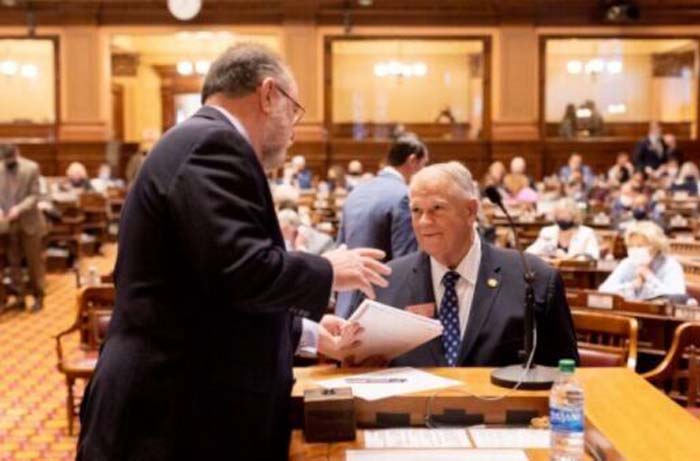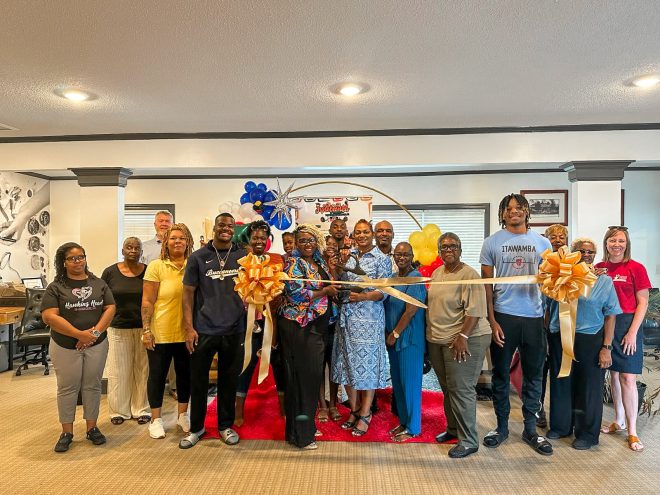Mental health proposal poised to receive bipartisan approval
Published 4:38 pm Wednesday, January 26, 2022

- Georgia Speaker David Ralston, right, filing House Bill 1013 on the floor of the House of Representatives with Clerk of the House Bill Reilly, at left, early in the legislative session.Photo from Georgia House of Representatives
ATLANTA — One topic Georgia legislators from both sides of the aisle seem to agree on is the need for mental health reform.
Georgia House Speaker David Ralston on Wednesday introduced House Bill 1013, what he called a comprehensive bill to reform Georgia’s mental health care delivery system and improve client outcomes. The bill has received backing from both Republicans and Democrats.
The bipartisan mental health proposal, called the Mental Health Parity Act, comes after suicides and overdose deaths have increased in the state, particularly during the COVID-19 pandemic.
“I am tired of telling desperate and hurting families that we have no treatment options available in Georgia,” Ralston said. “I am tired of looking at the faces of mothers who have lost a child because they saw no hope, and I’m tired of seeing the faces of those whose spiral downward has been fed by substance abuse.”
Mental Health America of Georgia— an arm of a nationwide mental health advocacy group— reports that Georgia ranks 48th out of the 50 states and DC for access to mental health care, resources and insurance; Two in five children have trouble accessing the mental health treatment they need, MHA reports.
According to a prepared statement, the 74-page bill would increase client access to care, ensure mental health parity for providers and clients, strengthen workforce development initiatives, expand transparency and accountability for consumers and enhance resources and tools for frontline responders and communities.
HB1013 incorporates recommendations of the Georgia Behavioral Health Reform & Innovation Commission which was established in 2019. The bipartisan commission is chaired by former State Rep. Kevin Tanner, and the commission is comprised of legislators, judges, mental health practitioners, law enforcement and client advocates.
Tanner explained Wednesday that the bill makes way for a state-funded compliance officer who will “ensure the best quality of service for patients;” will strengthen the mental health workforce through better wages, loan forgiveness programs and the ability to fully practice to the extent of their license; will streamline patients’ points of contact between physicians and insurance companies; and create diversion programs to prevent nonviolent offenders from entering the criminal justice system.
“The bill is giant leap forward and it will create solutions for many of the gaps we face in our mental health systems,” Tanner said. “All of these common sense measures will make a real difference in the lives of Georgians.”
While the various elements of the bill, if approved, would required subsequent funding, Ralston noted that $56 million had been added for mental health services during the current year’s budget process last spring.
Ralston plans to assign House Bill 1013 to the House Health & Human Services Committee for consideration and vetting.





